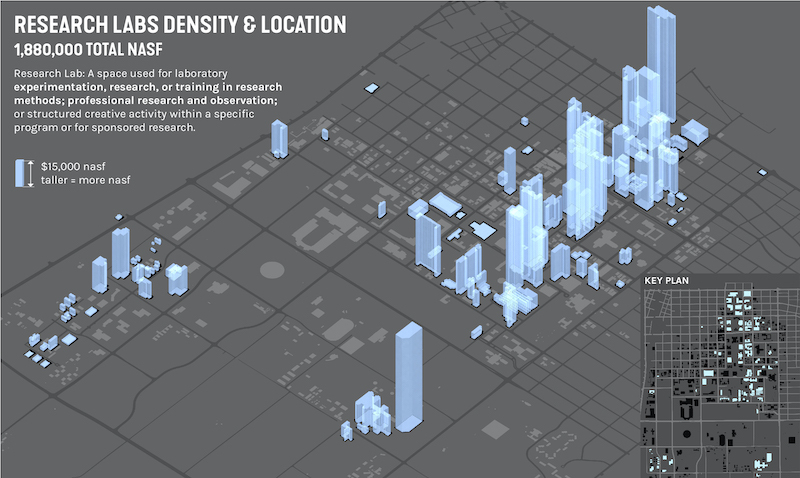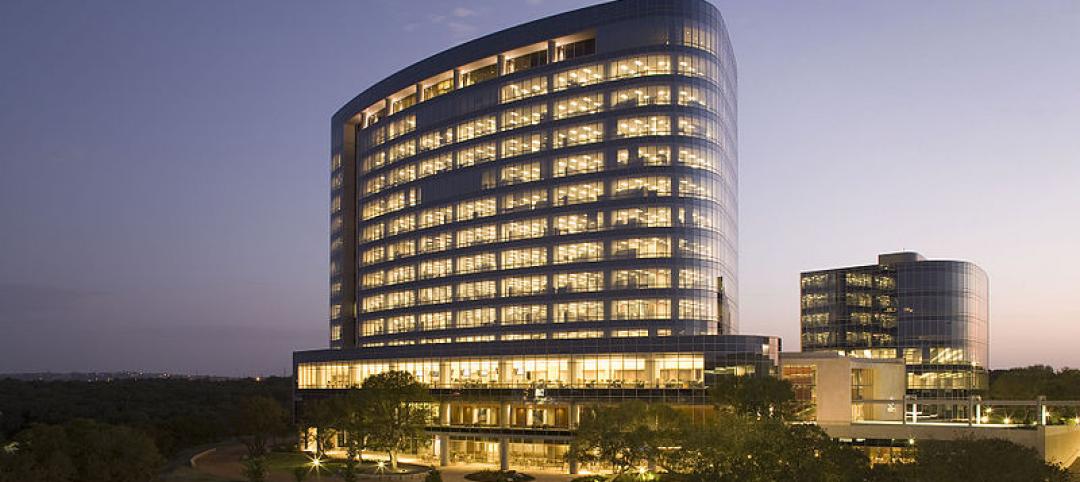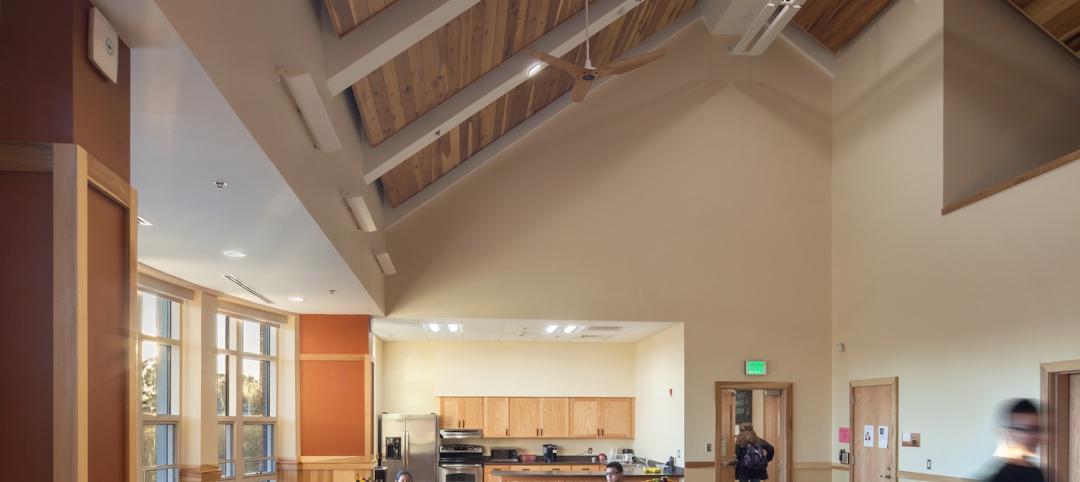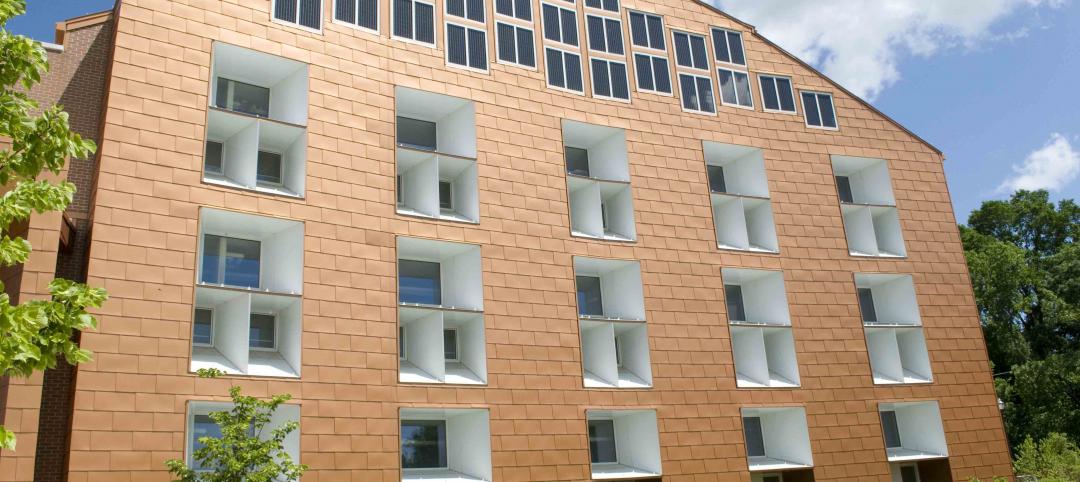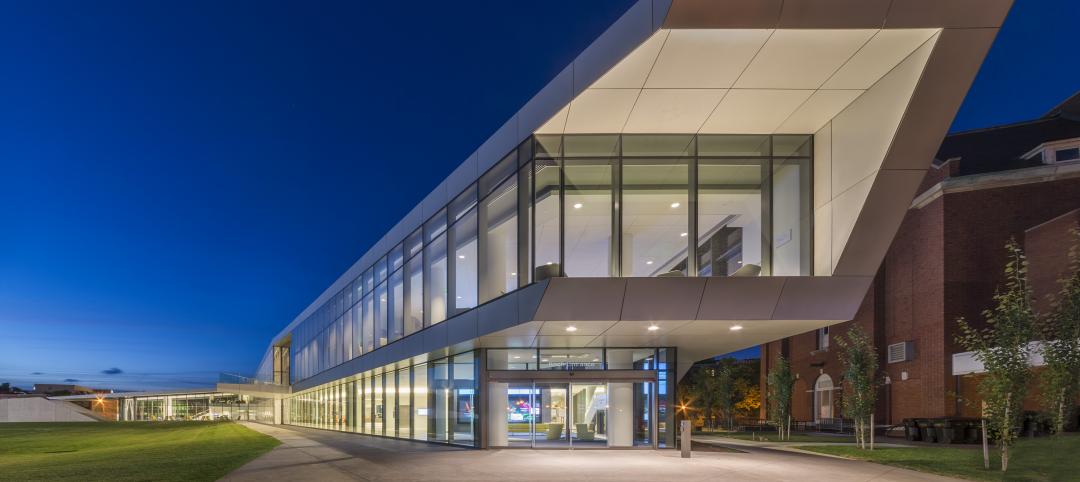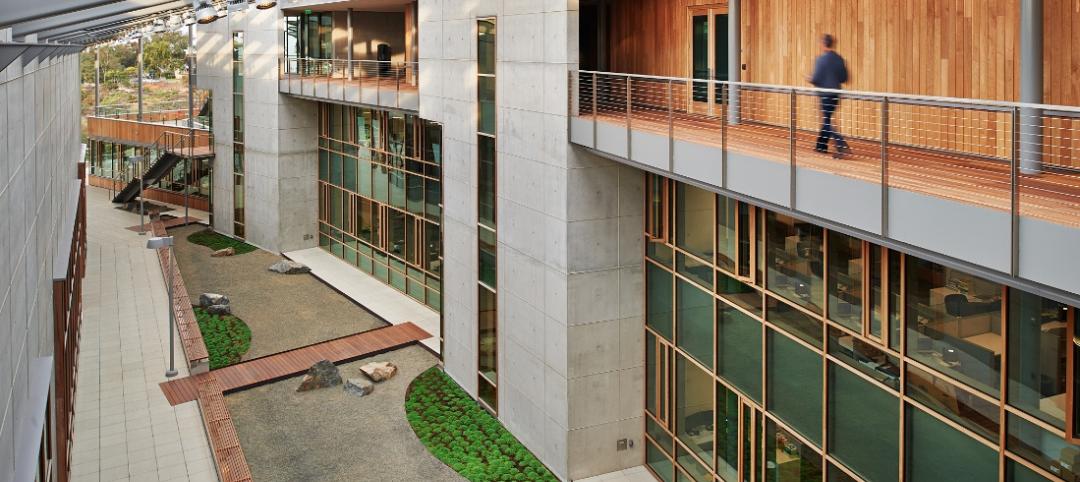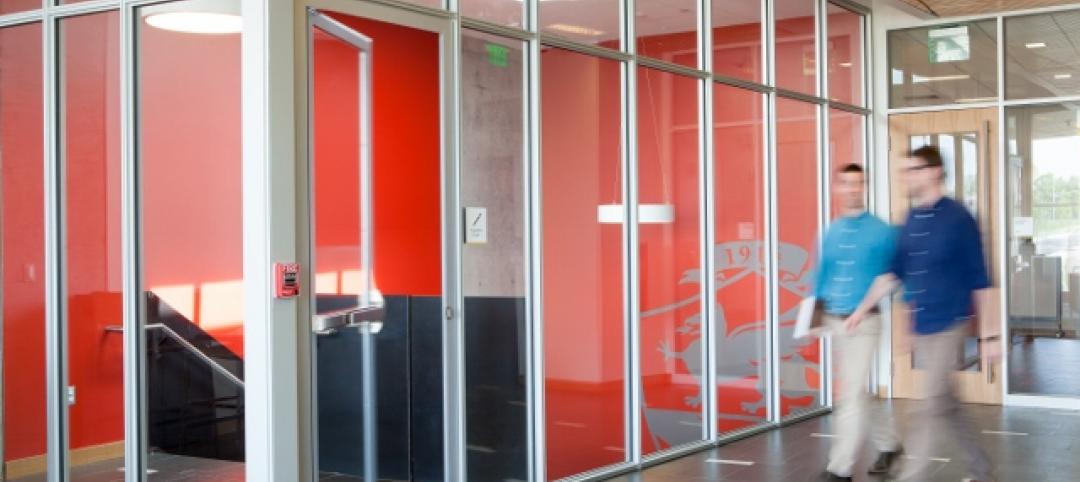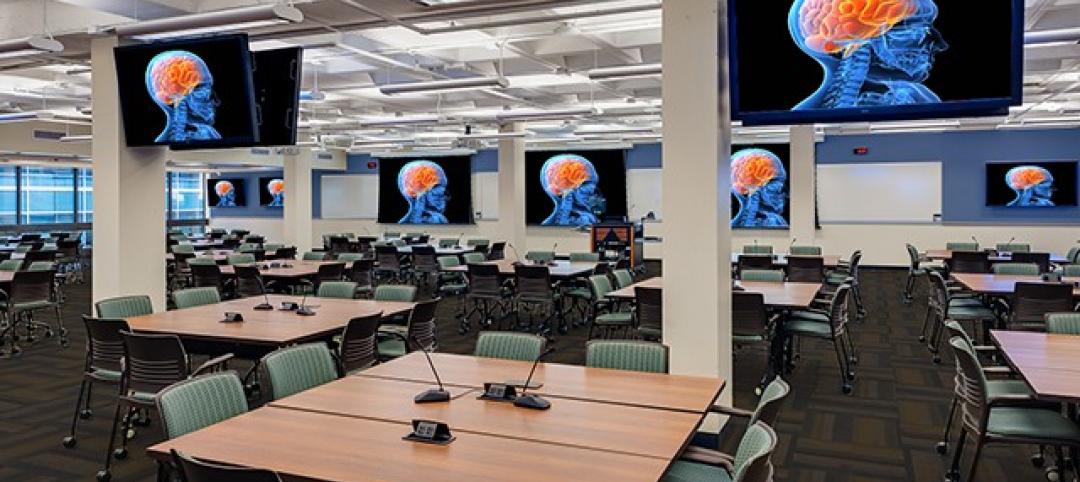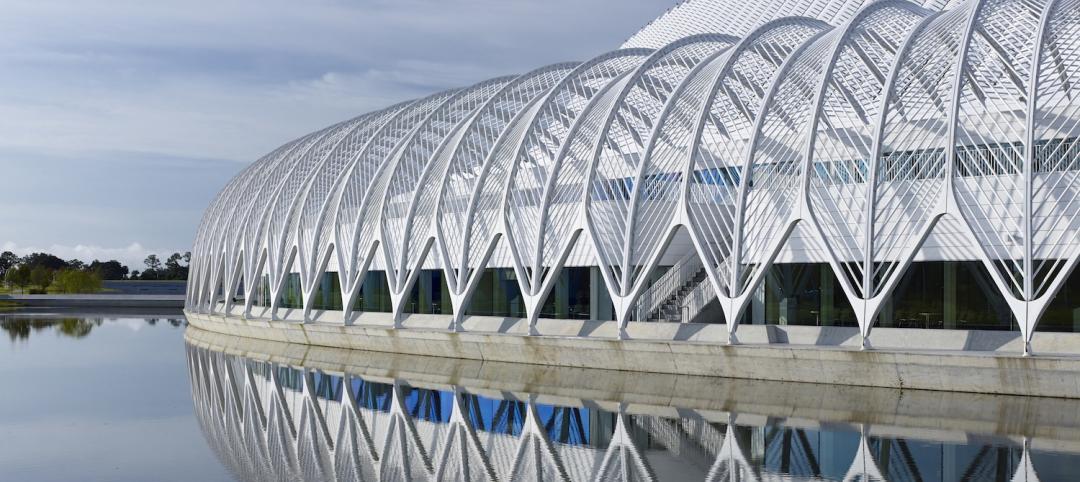About a year ago, SmithGroup merged with Paulien & Associates, a higher education planning firm based in Denver. The two companies had worked together on various projects for a decade, and Paulien has provided planning services for over 700 campuses.
That merger led to the formation within SmithGroup of its Campus Strategy & Analytics service, whose mission is to help colleges and universities evaluate their physical spaces and available resources, and align that information with the institution’s aspirations.
Higher Ed “wants to be nimble, but its assets are fixed,” observes Paul Leef, LEED AP, AIA, Vice President-Campus Strategy & Analytics Services.
Before SmithGroup discusses space with any of its Higher Ed clients, “we have a conversation about strategy,” says Leef. That discussion can touch on everything from the local environment and occupational demand to where a school’s program might be falling short in areas like new teaching and learning strategies, demographic trends, or policy development.
The team then analyzes factors that can include how campus space is being used versus prospective needs, the functionality and location of buildings, and whether the number, size, or type of classrooms is in sync with the campus’ pedagogy.
Leef says his team gives clients an external view of what’s driving education nationally. The team can provide insight into demographic changes and how they are impacting enrollment and teaching; for example, how first-generation students learn differently and require different services.
This exercise is usually less about the quantity of space, and more about repositioning existing assets. SmithGroup recently completed a study for the state of Oregon of its seven state universities, and found that while they had enough space, “they didn’t have the right combination of assets,” Leef says. SmithGroup recommended addressing deferred maintenance and programming in existing buildings. The firm also did a deep dive into those schools’ job markets and occupational demand to develop a framework for making capital fund decisions, and setting priorities for future assets.
SmithGroup has done a similar study for Florida’s legislature of the state’s 12 universities, and will examine Florida’s 28 colleges next. The Campus & Strategy Analytics team, with eight to 10 people, has worked with between 10 and 15 campuses in other markets, including a Big 12 university’s (which Leef couldn’t name) whose School of Medicine wants to enhance its reputation as a research facility.
Because Paulien’s project list is extensive, it can bring in data from other schools and markets to inform its analysis of a particular client. But, Leef is quick to note, “every institution has a different role.”
Those institutions are not required to use SmithGroup’s design services to tap into its strategy and analytics services. “We’re seen more as a trusted advisor that helps our clients succeed,” he says.
Related Stories
| Sep 3, 2014
New designation launched to streamline LEED review process
The LEED Proven Provider designation is designed to minimize the need for additional work during the project review process.
| Sep 2, 2014
Ranked: Top green building sector AEC firms [2014 Giants 300 Report]
AECOM, Gensler, and Turner top BD+C's rankings of the nation's largest green design and construction firms.
Sponsored | | Sep 2, 2014
Judson University’s Harm A. Weber Academic Center resembles copper, but its sustainability efforts are pure gold
The building’s custom-fabricated wall panels look like copper, but are actually flat metal sheets coated with Valspar’s signature Fluropon Copper Penny coating.
| Aug 26, 2014
Check out Case Western's stunning new university center [slideshow]
With its sloping grass-covered green roof, the two-story building is at the intersection of the two historic original Western Reserve University and Case Institute of Technology campuses, and includes a walkway that connects the campuses.
| Aug 25, 2014
Tall wood buildings: Surveying the early innovators
Timber has been largely abandoned as a structural solution in taller buildings during the last century, in favor of concrete and steel. Perkins+Will's Rebecca Holt writes about the firm's work in surveying the burgeoning tall wood buildings sector.
| Aug 21, 2014
Ranked: Top science and technology sector AEC firms [2014 Giants 300 Report]
HDR, Affiliated Engineers, and Skanska top BD+C's rankings of the nation's largest S+T sector design and construction firms.
Sponsored | | Aug 16, 2014
Fire-rated framing system makes the grade at Johnson & Wales University Center
The precision engineering of TGP’s Fireframes Aluminum Series creates narrow profiles and crisp sightlines at Johnson & Wales University Center for Physician Assistant Studies
| Aug 16, 2014
The science of learning: Designing the STEM learning facilities of the future
New technology and changing pedagogies are influencing how to best teach a generation of learners who have never known a world without smartphones or tablets, writes HOK's Kimberly Robidoux.
| Aug 13, 2014
Campus UX: Why universities should be creating 'branded environments' on campus
When most colleges and universities consider their brands, they rarely venture beyond the design and implementation of a logo, writes Gensler Design Director Brian Brindisi.
| Aug 12, 2014
First look: Calatrava's futuristic Main Building opens at Florida Polytechnic University
The $60 million structure is wrapped in a bright-white, aluminum pergola for dramatic effect and solar shading.


